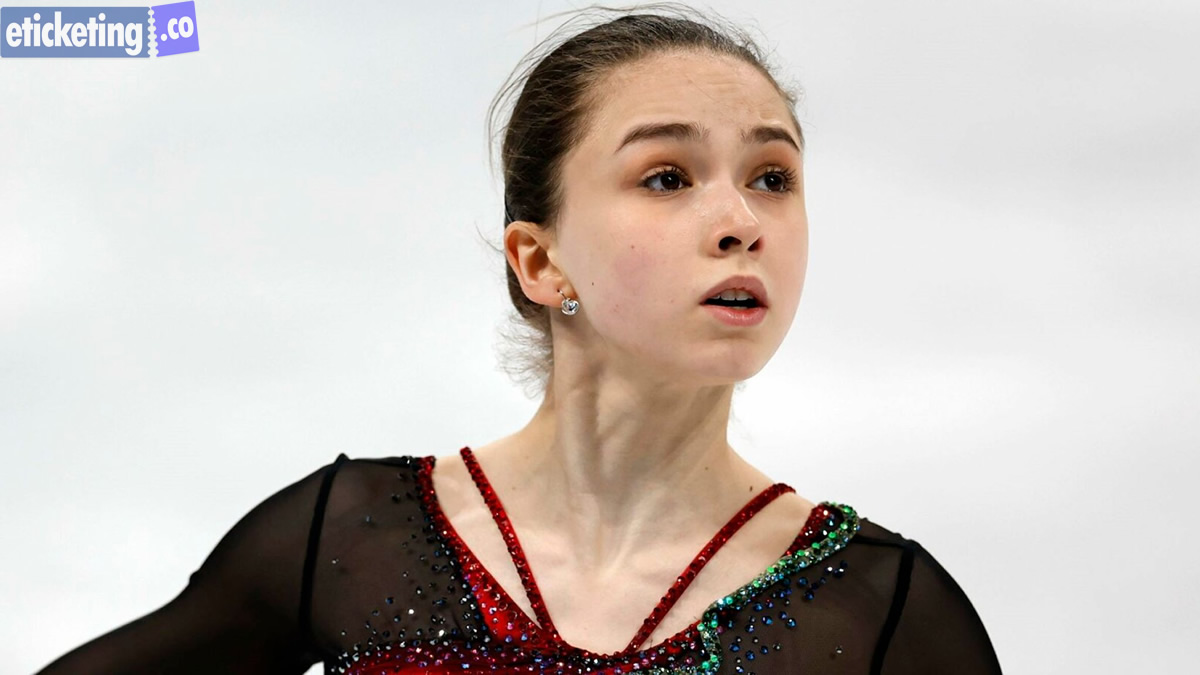Russia has officially announced its intention to appeal the decision to strip it of its Olympic gold medal following the doping ban of teenage figure skater Kamila Valieva. The Russian government, including high-ranking officials, has expressed outrage, claiming that the ban is politically motivated, signaling the latest chapter in the nation’s fraught relationship with global sporting authorities. This controversy also casts a shadow over the sport of Winter Olympic figure skating, which has long been a source of national pride for Russia. Valieva’s case, marked by a doping violation at the 2022 Beijing Winter Olympic, has intensified tensions between Russia and international sports organizations, especially in Winter Olympic figure skating, where the country has historically excelled.
Olympic 2026 fans worldwide can book Winter Olympic Tickets from our online platforms eticketing.co Fans can book Olympic Tickets on our website at discounted prices. Experience the thrill of the Games in Milano Cortina and support your favorite athletes as they compete for glory.
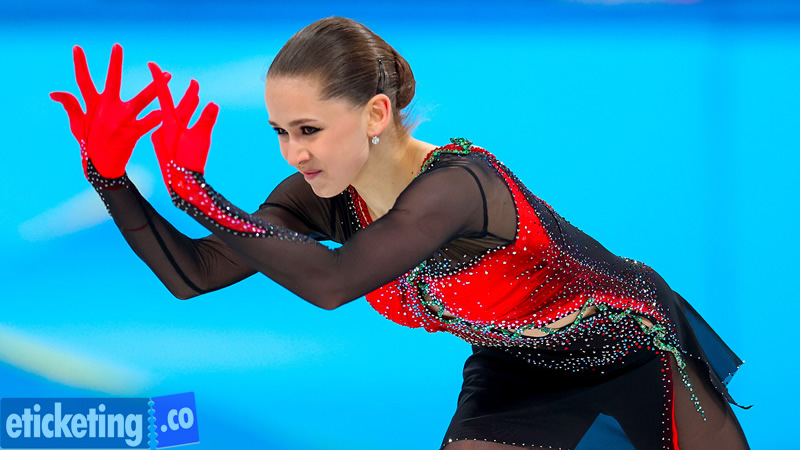
Winter Olympic: The Court of Arbitration for Sport’s Decision
On Monday, December 2024, the Court of Arbitration for Sport (CAS) imposed a four-year ban on Kamila Valieva, effective retroactively from December 2021. The ruling came after Valieva, who was 15 at the time of the offense, tested positive for a banned substance at the Russian National Championships in December 2021. This decision also led to the Russian Olympic Committee (ROC) being stripped of its gold medal in the team event at the 2022 Beijing Winter Olympic, nearly two years after the competition concluded.
Valieva’s positive test for trimetazidine, a substance used to treat angina, caused a massive controversy. The athlete’s legal team suggested that the positive result could have been a result of contamination from her grandfather’s heart medication. However, the CAS panel ruled that Valieva had no special treatment in light of her age and treated her similarly to an adult athlete found guilty of anti-doping violations. As a result, the International Skating Union (ISU) revised the team standings from the Beijing Winter Olympic, downgrading the Russian team from a gold to a bronze.
Russia’s Response: Denial and Defiance
The Russian government has firmly opposed both the CAS ruling and the revised Olympic standings. Kremlin spokesperson Dmitry Peskov condemned the decision, referring to it as politically motivated. He stated that the Russian authorities did not agree with the court’s verdict or the decision made by the ISU, stressing that the Russian government would continue to defend the rights of its athletes. Peskov emphasized that if there were any legal avenues available to challenge the decision, Russia would use them to the fullest extent. His remarks were a clear signal that the Russian authorities intend to fight the doping verdict at every level.
Following Peskov’s statements, the Russian Olympic Committee (ROC) revealed that it was preparing to appeal the change in the standings. According to the ROC, current ISU rules should not allow the sanctions imposed on an individual athlete, in this case, Kamila Valieva, to affect the results of the team event. The committee insists that Valieva’s doping violation should not lead to the stripping of the team’s gold medal, especially considering that Valieva’s points were already removed from the team’s total score, yet Russia’s final tally was still higher than that of Canada, who had finished fourth. You Can Read Winter Olympic 2026: Jason Brown Olympic Medalist Returns to Vail’s Ice Spectacular
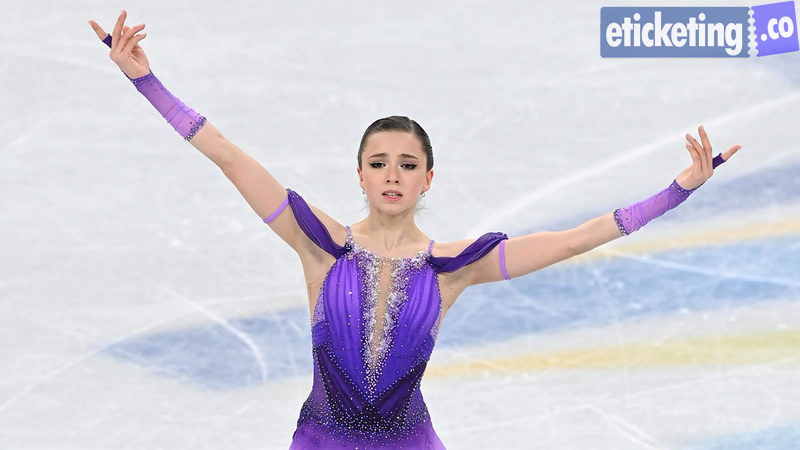
The Doping Controversy: Trimetazidine and Russia’s Legacy of Doping Scandals
Kamila Valieva’s doping case has sparked intense emotions in Russia and internationally. The positive test for trimetazidine was a shock, as the substance is known to enhance endurance and physical performance. It is not the first time that Russia has been embroiled in doping scandals, with the country’s sports program often at the center of doping allegations.
Valieva’s legal team has claimed that the positive result stemmed from an accidental mix-up of medications, suggesting that her grandfather’s heart medication might have been to blame. Despite this defense, the CAS panel concluded that there was no reason to show any leniency to Valieva due to her age. In its ruling, the CAS panel determined that she should be treated the same as any other athlete found guilty of a doping infraction, regardless of her young age.
Kamila Valieva: National Hero or Doping Scandal?
For Valieva, the doping scandal has been a tremendous personal and professional setback. She was one of the most promising and decorated figure skaters of her generation before the doping incident, earning widespread acclaim for her performances in both domestic and international competitions. Her testing positive for trimetazidine was particularly damaging, as it occurred during one of the most high-profile events of her career—the 2022 Beijing Winter Olympic.
Despite this, many in Russia continue to view Valieva as a national hero. The Kremlin’s strong defense of her and the Russian team, despite the doping controversy, reflects a larger narrative within the country about the importance of sports as a means of asserting national pride and power. Russian officials have repeatedly described the decision to penalize Valieva and the team as part of a broader Western effort to undermine Russian achievement.
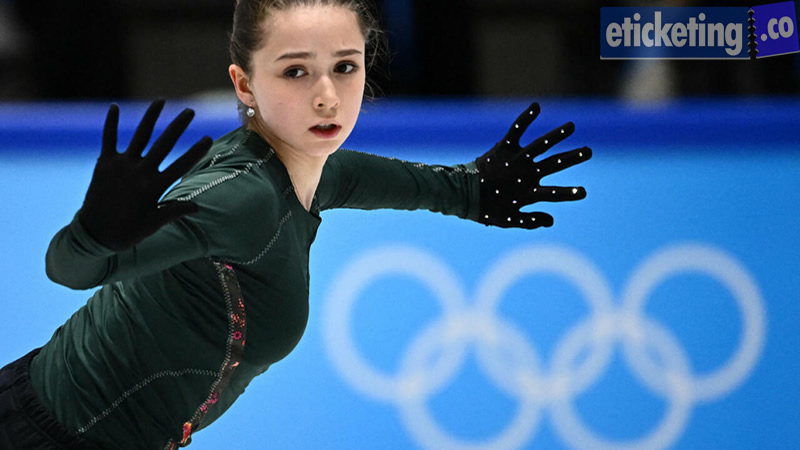
The International Skating Union’s Role
The ISU played a central role in revising the standings following Valieva’s disqualification. Initially, it was assume that Canada, who had finish fourth in the team event, would be promote to the bronze medal position. However, after recalculating the team scores with Valieva’s points removed, the ROC’s team score remained higher than that of Canada. The ISU therefore award the bronze medal to the Canadian team, but the Russian team’s status as Olympic champions was unequivocally erase.
The ISU’s decision has been controversial, with critics claiming that the results should have been revise in favor of Canada, which finished just behind Russia in the standings. Others argue that the disqualification of Valieva and the subsequent removal of her scores from the team total make Russia’s bronze medal position legitimate. The revised standings, however, have caused significant backlash within Russia, which continues to maintain that the sanction is unjust and politically motivated.
Winter Olympic 2026: The Broader Context of Russian Doping Scandals
The Kamila Valieva doping scandal is just the latest chapter in Russia’s ongoing struggle with doping allegations. Russia has long been accus of state-sponsored doping programs, and the issue has deeply affected its reputation in the international sports community. Since the 2014 Sochi Olympic, Russia has been repeatedly penalize for doping violations, leading to bans, suspensions, and the removal of medals.
Most notably, Russia has face the consequences of a large-scale state-sponsors doping program that was uncover following the 2014 Winter Olympic. As a result, Russian athletes have been force to compete under a neutral flag in several major international competitions, including the Olympic. Despite these issues, the Russian government has continued to deny widespread doping allegations, instead framing them as politically motivated attacks by the West.
Olympic 2026 fans worldwide can book Olympic Figure Skating Tickets from our online platforms eticketing.co Fans can book Olympic Tickets on our website at discounted prices. Experience the thrill of the Games in Milano Cortina and support your favorite athletes as they compete for glory.
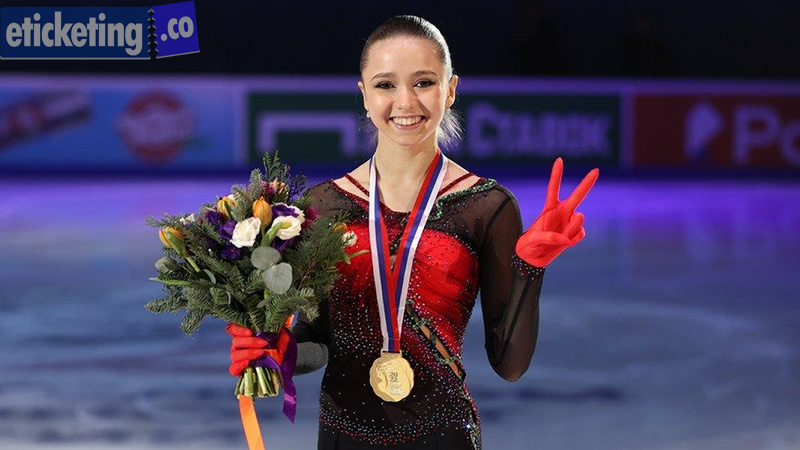
The Future of Kamila Valieva and Russian Winter Olympic Figure Skating
Kamila Valieva’s future in competitive Winter Olympic figure skating remains uncertain, as the CAS ruling could significantly impact her career. With her four-year suspension, Valieva will not be eligible to compete at the Winter Olympic 2026, which is a significant blow to both her personal ambitions and the future of Russian figure skating. However, Valieva has expressed her determination to continue her skating career, despite the challenges she now faces.
The case has also raise broader questions about the way athletes, particularly minors, are treat in doping cases. Some have argued that Valieva should have received more lenient treatment given her age, while others believe that the strict enforcement of anti-doping rules is necessary to maintain fairness in international sport. The case will likely have a lasting impact on how anti-doping regulations are enforced, particularly for athletes who are still in their teenage years.
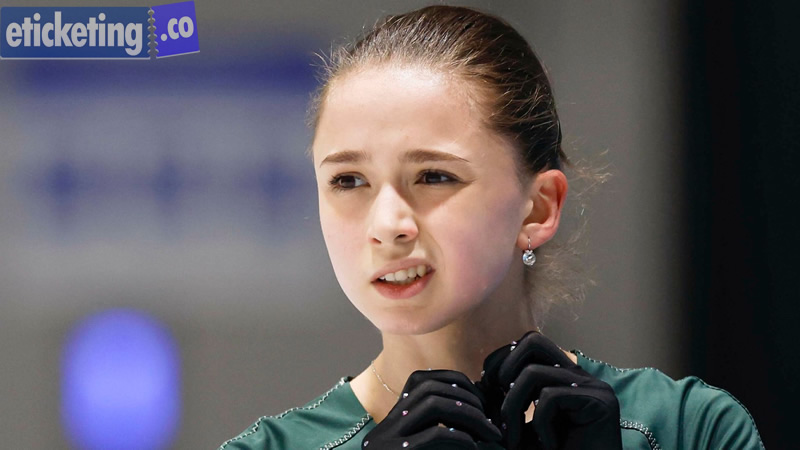
Winter Olympic Figure Skating: A Battleground for National Pride and Doping Controversies
The appeal against the decision to strip Russia of its Olympic gold medal in the Winter Olympic figure skating team event is a complex issue that touches on national pride, international sports politics, and the enforcement of anti-doping regulations. Russia’s strong objections to the decision reflect the broader tension between the nation and global sporting authorities, as well as the personal and professional ramifications for Kamila Valieva. As the appeal moves forward, it will likely continue to fuel the debate over doping in sports and the treatment of young athletes in high-stakes competitions.
Experience the magic and excitement as fans from around the world gather to celebrate the spirit of the Games. Secure your Olympic Opening Ceremony Tickets now and create memories that will last a lifetime at the unforgettable Winter Olympic 2026.
